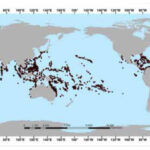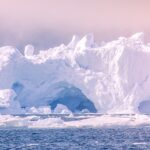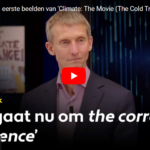Scientist says Arctic getting colder
Published: April 23, 2010 at 10:48 AM
MOSCOW, April 23 (UPI) — A Russian scientist says the Arctic may be getting colder, not warmer, which would hamper the international race to discover new mineral fields.
An Arctic cold snap that began in 1998 could last for years, freezing the northern marine passage and making it impassable without icebreaking ships, said Oleg Pokrovsky of the Voeikov Main Geophysical Observatory.
“I think the development of the shelf will face large problems,” Pokrovsky said Thursday at a seminar on research in the Polar regions.
Scientists who believe the climate is warming may have been misled by data from U.S. meteorological stations located in urban areas, where dense microclimates creates higher temperatures, RIA Novosti quoted Pokrovsky as saying.
“Politicians who placed their bets on global warming may lose the pot,” Pokrovsky said.
Bron: www.upi.com/Science_News






Dear Colleagues,
Thank you for discussion of my conclusions presented at recent IPY conference
occurred in AARI (St.Petersburg, Russia).
My vision of future climate is based on comprehensive analysis of available climate index series analysis, which permits to reveal fundamental quasi-periodical oscillations in most components of climate system:
-Solar activity
-SST of ocean (AMO and PDO)
-Surface air temperature
– Surface irradiance (modulation of cloudiness)
-Precipitations
-Ice extent in Russian Arctic Seas
I found that that those are in strong coherence when inter-annual climate noise was removed in each of them
I revealed that solar activity (next after 11-year) quasi-periodical cycle is close to 68-70 years. It drives ocean. There is 17- year delay between North Atlantic and Pacific due to global conveyer found by Prof Brocker in 90-th. Deep water branch of the conveyer has a scale of 800-1000 years. But there are several other scales for solar oscillations. Next one is close to 380-420 years. That is why I assume that solar activity minimum (analog Maunder) and cold climate is close ahead.
My motivation might be illustrated by a set of figures presented at recent Arctic Frontiers Conference (Tromso, Norway)
http://www.arctic-frontiers.com/index.php?option=…
See also
Pokrovsky O.M., 2009. The North Atlantic SST impact on the Ice Extent in the Kara and Barents Seas.-"Sea Technology", Arlington, COMPASS Publ., v.50, N 9, p. 27-32.
Pokrovsky O.M., 2009. Coherence between the winter Pacific Decadal Oscillation and the Surface Air Temperature trends in the continental regions adjoining the North Pacific.
– CLIVAR Exchanges, Southhampton, UK, N 49, p.32-35.
Pokrovsky O.M., 2008. Relationship between the Atlantic Multidecadal Oscillation and the ice extent in Kara Sea. – CLIVAR Exchanges, N 46, p.8-9.